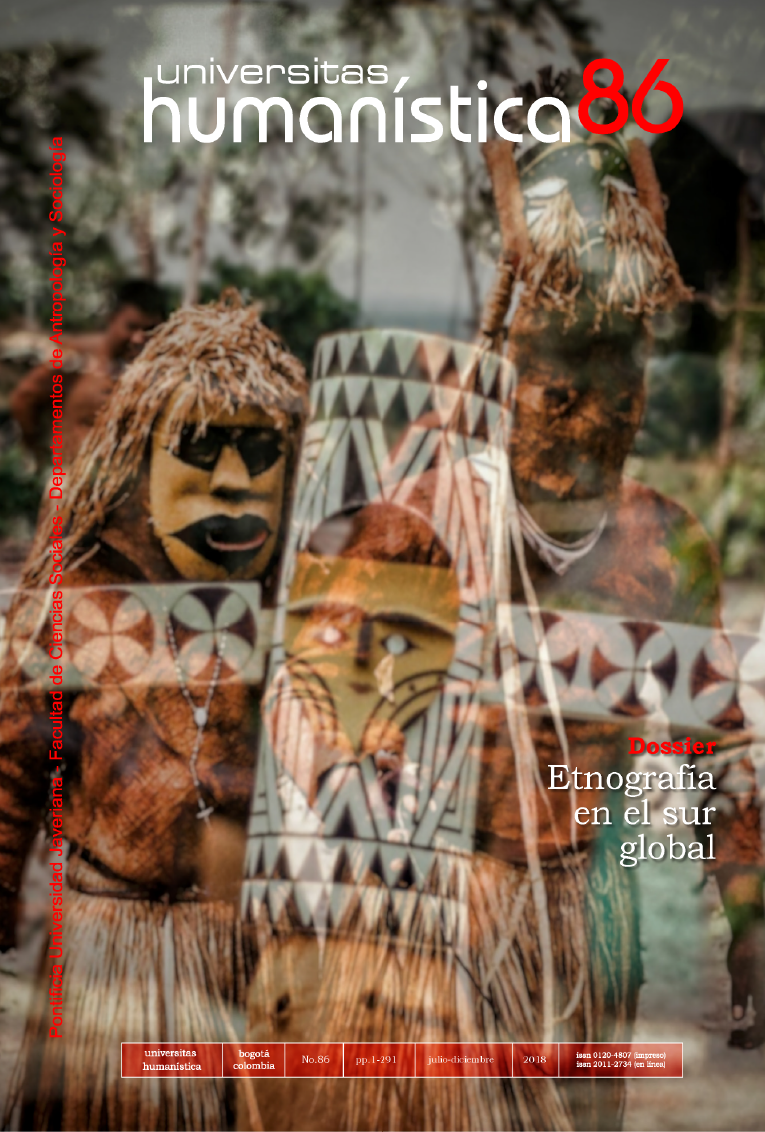Abstract
The present article is the result of an undisciplined, long-lasting and supportive ethnographic work that aims to examine the process of identity and territorial reconstruction of the native people of Jenoy (Colombia), thirteen years after being declared a disaster area located in the territory adjacent to the Galeras volcano in 2005 (Decree 4106), and receiving the order to relocate the population settled in a zone of high volcanic risk in 2008 (Decree 3905); both decisions being subsequently ratified by the constitutional jurisprudence in 2015 (Sentence T-269) despite the legitimate community opposition (Article 16, Law 21 of 1991). The construction of the document is proposed from a literary ethnography or ethnoliterature, based on the oral and territorial memory of the elderly native people. For this purpose, the work is oriented towards dialogue, solidarity and the search for new paths.

This journal provides immediate open access to its content on the principle that making research freely available to the public, encourages greater global exchange of knowledge.
The journal Universitas Humanística is registered under a Creative Commons Attribution 4.0 International Public License. Thus, this work may be reproduced, distributed, and publicly shared in digital format, as long as the names of the authors and Pontificia Universidad Javeriana are acknowledged. Others are allowed to quote, adapt, transform, auto-archive, republish, and create based on this material, for any purpose (even commercial ones), provided the authorship is duly acknowledged, a link to the original work is provided, and it is specified if changes have been made. Pontificia Universidad Javeriana does not hold the rights of published works and the authors are solely responsible for the contents of their works; they keep the moral, intellectual, privacy, and publicity rights.
Approving the intervention of the work (review, copy-editing, translation, layout) and the following outreach, are granted through an use license and not through an assignment of rights. This means the journal and Pontificia Universidad Javeriana cannot be held responsible for any ethical malpractice by the authors. As a consequence of the protection granted by the use license, the journal is not required to publish recantations or modify information already published, unless the errata stems from the editorial management process. Publishing contents in this journal does not generate royalties for contributors.



